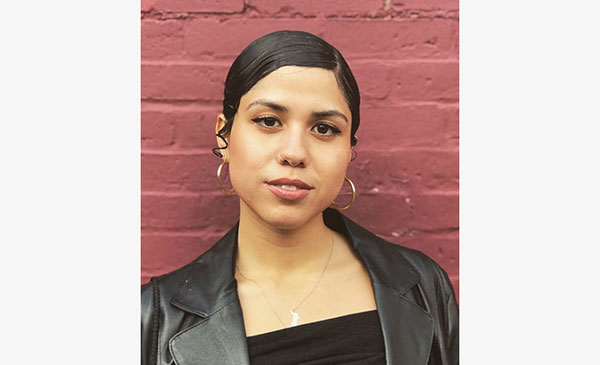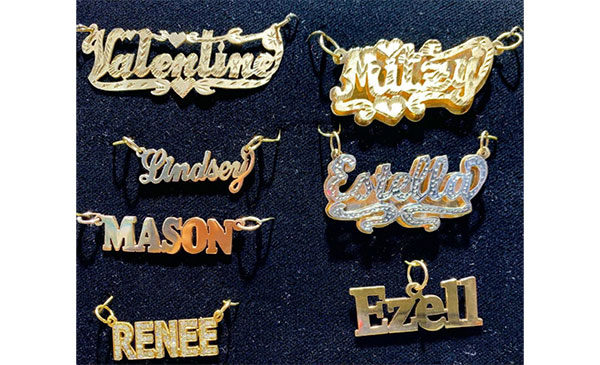5 Questions for Assistant Professor Marcel Rosa-Salas
Last semester, UIC Business welcomed Marcel Rosa-Salas, Assistant Professor of Marketing, to the college. With a strong background in cultural anthropology and brand development, she is committed to helping students understand the influence that marketing has on consumers’ thoughts about race in American society. This topic is the focal point of her latest course, MKTG 459 Marketing Insights from Qualitative Research. Professor Rosa-Salas has an interest in filmmaking as well. Her impressive portfolio includes several documentaries that she led as producer and director. Read more to learn about Professor Rosa-Salas’ experiences as an educator, researcher, and a creative.
Welcome to UIC Business! What does being an assistant professor at the college mean to you?

Welcome to UIC Business! What does being an assistant professor at the college mean to you?
Education and independent research have been my life-long passions. Becoming a professor has been one of the most exciting phases of my life, because I can continue to ask questions of the world that fascinate me and do so by building that knowledge with others. For me, being an assistant professor at UIC Business is an amazing opportunity to collaborate with faculty and students on crafting exciting and valuable learning and research that cultivate curiosity, incite action, and inspire an interest in understanding how marketing shapes everyday life.
One of your areas of expertise is in cultural anthropology. What inspired your interest in studying the effects of marketing on ideas about race, capitalism, and identity?
Anthropology is a way of seeing the world that highlights the taken-for-granted rituals and ideas that shape us. Culture is what binds us and differentiates us, and anthropologists focus on this phenomenon to gain insight into our diverse lives as human beings. Marketing has become one of the most powerful driving forces in contemporary life, driving and shaping not only our cultural experiences, but our understanding of who we are as individuals and as part of groups. The invented concept of “race” is also a consequential aspect to culture – especially American culture – and has pivotal effects on how we understand what it means to be human. Marketing is a realm where our society’s taken-for-granted notions about race take shape, not only in advertisements but in how brands think about consumers. My scholarship focuses on the role that both marketers and advertising professionals play in constructing our culture’s ideas about racial identity and connects these practices to broader economic and political concerns, particularly social justice.
Documenting The Nameplate is a project that you co-manage. Explain the significance of celebrating jewelry culture.

Documenting The Nameplate is a project that you co-manage. Explain the significance of celebrating jewelry culture.
Documenting the Nameplate is a forthcoming book and ongoing digital media project that I co-edit with journalist Isabel Flower that explores the history and contemporary cultural significance of nameplate jewelry, a style that I have loved since I was a child and one that continues to be popular in the United States and across the globe. This style has existed in some form or fashion since the 19th century. What makes nameplate jewelry unique is its focus on wearing one’s name and the written word, which signify how people use material culture creatively to create meaning and form bonds with others. For the past five years, Isabel and I have hosted events in cities across the United States where nameplate jewelry wearers can have their pieces photographed and share stories about their origin and meaning. We also garner submissions from around the world on our Instagram page @documentingthenameplate. Our aim with the project is to tell a dynamic cultural history of this fashion phenomenon through the voices and experiences of people of diverse backgrounds and use technology to reimagine what it means to produce scholarship. We welcome any submissions from the UIC community!
You have also directed and produced several documentaries. Tell us about some of your films.

You have also directed and produced several documentaries. Tell us about some of your films.
Documentary film is one of my favorite ways to learn and produce knowledge. They are just as important to me as books and articles, and are an evocative way of conveying information in a way that centers compelling narrative and entertainment. Documentary film is also a wonderful way to conduct anthropological research. I was trained in documentary filmmaking for my anthropology PhD at New York University. My first documentary, Chasing Real, I made as an undergraduate at the University of Pennsylvania, and spotlighted how hip-hop artists in New York City use the internet to market themselves and craft successful careers outside the major label recording system. I have also made films exploring children’s relationship to technology, and another film profiling LGBTQ hip hop artists. My most recent film, Ode to Fazil’s, is a tribute to an iconic New York City dance studio that I spent a lot of time in as a child but was demolished due to gentrification in Manhattan. The process behind producing a documentary is much like that of a research article, but is unique in that it has the potential of reaching people outside academia as well, which democratizes how information is shared and experienced.
Outside of the class environment, what activities do you enjoy?
Outside of the classroom I enjoy singing, doing yoga every day, co-producing a podcast called the Top Rank Podcast, brainstorming creative projects, and connecting with friends and family. I also have a love for bold nail art and enjoy relaxing by binge-watching some reality tv shows – which I find educational in their own way!